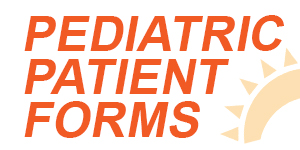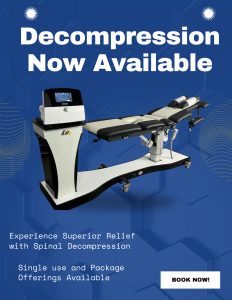Pinched nerves are extremely common issues amongst the general population. But there are many different health problems that can mimic the symptoms of a pinched nerve. So, how can you tell for certain that what you’re suffering from is a pinched nerve and not some other injury?
In this article, we will review the topic of pinched nerves and teach you the common signs of this painful condition.
What is a Pinched Nerve?
A pinched nerve is a general term that can refer to a host of specific conditions. However, the term “pinched nerve” provides a perfect description of what is happening during most of these issues.
For instance, a pinched nerve in the neck that leads to tingling, pain, and weakness in the hand is known as a radiculopathy. Radiculopathies often originate in the low back or neck, but they can occur anywhere in the spine. Bulging discs, tight muscles, and other similar issues are often the causes of radiculopathies.
Also, nerves can be pinched in the periphery. You can develop a pinched nerve in the shoulder, a pinched nerve in the hip, and in many other areas. Case in point, carpal tunnel syndrome is a form of a pinched nerve in the arm. Specifically, carpal tunnel syndrome occurs when the median nerve becomes compressed in the wrist. This leads to classic nerve symptoms such as pain, numbness, and weakness in the hand.
No matter what causes a nerve to become pinched, these injuries often take a long time to heal. Additionally, they are frequently misdiagnosed, which only complicates matters further.
Identifying a Pinched Nerve
As with any condition, it’s always a good idea to seek a professional examination by a qualified healthcare professional rather than self-diagnosing. However, if you are able to narrow down your symptoms, you can often provide better information to your evaluating clinician, leading toward a better diagnosis.
In this section, we’ll review some of the top signs related to pinched nerves.
Pinched Nerve Sign #1: Numbness
As was discussed earlier, pinched nerves will often result in numbness downstream. For instance, a pinched nerve in the neck will often lead to hand and forearm numbness.
Pinched Nerve Sign #2: Weakness
If you have a pinched nerve in your low back or hip, you might begin to notice that your foot is dragging when you walk. Oddly, you might not experience any other symptoms besides this issue. Foot drop, or the inability to flex the ankle upward is one of the top signs of a pinched sciatic nerve.
Pinched Nerve Sign #3: Pain
When it comes to pinched nerves, the type of pain can vary widely. For instance, pinched nerves may lead to throbbing, stabbing, or other types of pain. If you are experiencing this type of pain, and if it seems to get worse when you assume specific postures, you probably have a pinched nerve somewhere in your body!
Pinched Nerve Sign #4: Tingling
Some pinched nerves will cause a sensation of tingling. This can feel similar to “pins and needles” which you might experience after falling asleep with your hand above your head.
Chiropractors and Pinched Nerves
Of all the various healthcare providers, chiropractors are likely the ones who focus most closely on the nervous system. Most chiropractic treatments are designed to improve spinal alignment through the use of joint manipulations and other treatments.
If you are experiencing any signs or symptoms related to a pinched nerve, come in to see your Parker chiropractors at Awaken Chiropractic today. We are experienced in the treatment of nerve pain of all types and we would love to help you. Book your appointment today!







